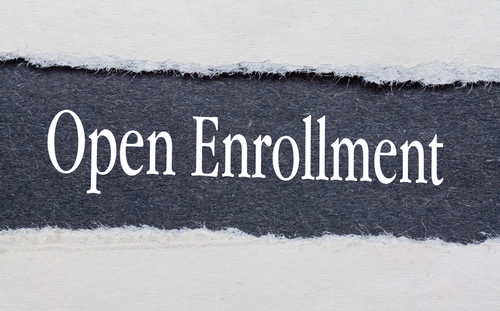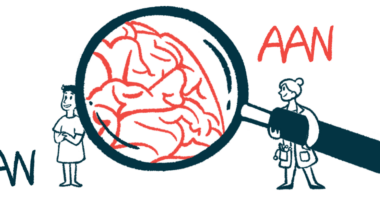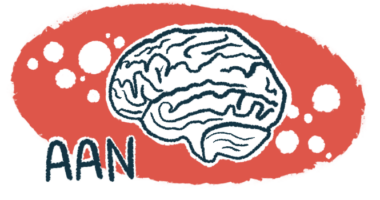RESCUE-ALS Trial Enrolls More Than Half of Patients Ahead of Schedule

The Phase 2 clinical trial investigating Clene Nanomedicine‘s CNM-Au8 as a potentially disease-modifying therapy for people with amyotrophic lateral sclerosis (ALS) has enrolled more than half of its participants ahead of schedule.
RESCUE-ALS (NCT04098406) dosed its first participant in January, and so far has enrolled 26 of the planned 42 patients. Full enrollment is expected in a few months, the company announced.
“We are excited to achieve this enrollment milestone for our Phase 2 RESCUE-ALS trial and believe we are on track to complete full enrollment in the third quarter of this year,” Rob Etherington, president and CEO of Clene, said in a press release.
CNM-Au8 consists of a suspension of nanocrystalline gold that acts to support biological reactions within cells. The treatment is designed to support cellular reactions that generate energy, as well as to help remove the toxic byproducts of cellular metabolism.
After showing that CNM-Au8 improves motor function in animal models of ALS, and that the treatment is safe in healthy people, Clene launched RESCUE-ALS to study the safety and effectiveness of CNM-Au8 in people with ALS.
The trial is enrolling patients ages 40 to 80, whose symptoms began no longer than two years ago, or who were diagnosed within the prior year. Participants are being recruited at two clinical sites in Australia and are receiving either 30 mg CNM-Au8 or a placebo, taken daily by mouth for 36 weeks (about eight months). Those receiving a stable dose of riluzole may continue to do so during the trial.
The trial’s main goal is to determine if CNM-Au8 is better than a placebo at preventing the loss of motor neurons — measured as changes in the Motor Unit Number Index (MUNIX) from study start to end — and other measures of motor nerve cell health will be examined as secondary goals.
Additional measures include changes in ability to perform daily life tasks, such as speaking, swallowing, and dressing — assessed via ALS functional rating scale-revised (ALSFRS-R) scores — as well as changes in lung function and quality of life.
Top-line results from RESCUE-ALS are expected by April 2021. After completing the treatment period, patients in this trial may enter an open-label extension trial (RESCUE-ALS OLE), in which all will receive the active treatment.
RESCUE-ALS is partly funded by FightMND, a nonprofit patient advocate group in Australia working to raise awareness about motor neuron disease (MND) in that country.
“Enrollment in this Phase 2 study is ahead of schedule and clearly emphasizes the unmet medical need in this devasting disease. In preclinical models of ALS, CNM-Au8 has been shown to promote neuroprotection and reduce neurodegeneration,” said Robert Glanzman, MD, chief medical officer of Clene.
“We believe the unique mechanism of CNM-Au8 provides the potential to be an effective disease-modifying therapy for patients with ALS and we look forward to completing enrollment,” Glanzman added.
Clene soon will initiate another Phase 2 trial (NCT03843710) in ALS patients to confirm CNM-Au8’s ability to enter the central nervous system and improve the metabolic profiles of nerve cells. Researchers will use a kind of imaging technology called 31P-magnetic resonance spectroscopy that measures oxidative stress — which contributes to ALS progression — and the rate of energy production in cells.
The open-label REPAIR-ALS trial (NCT03843710) will enroll up to 24 participants, ages 35 to 75, in the U.S.
CNM-Au8 also is one of the investigational therapies that will be tested in the HEALEY ALS Platform Trial (NCT04297683), a kind of trial model designed to accelerate the development of ALS therapies by assessing multiple treatment candidates simultaneously.






